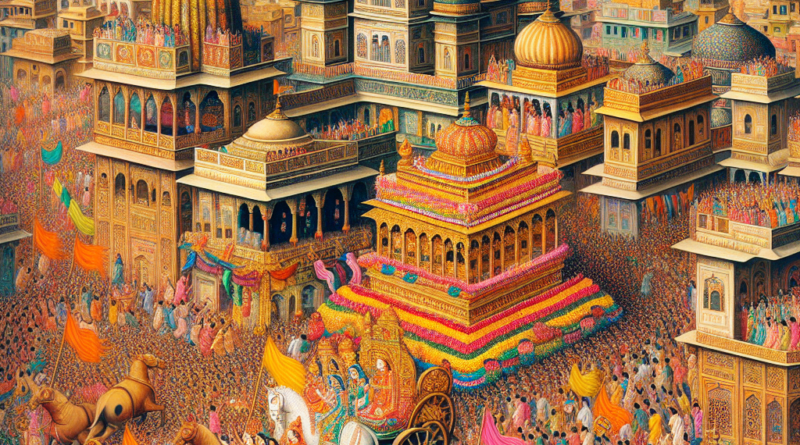Enchanting celebrations: Hindu festivals rich in tradition
Title: The Colorful Tapestry of Hindu Festivals: Unveiling the Cultural Significance in Indian Tradition
Hindu festivals are an integral part of the rich tapestry of Indian culture, weaving together vibrant traditions, spiritual significance, and community celebrations. Rooted in ancient mythology and religious beliefs, these festivals serve as a powerful reflection of the diverse cultural heritage of India. From the grandeur of Diwali to the devotion of Navratri, each festival carries its own unique significance, symbolizing different aspects of Hindu mythology, history, and spirituality.
Historical Context:
The origins of Hindu festivals can be traced back to ancient scriptures and epics, such as the Vedas, Ramayana, and Mahabharata. These texts serve as the foundation for many of the rituals and customs observed during various festivals. For example, Diwali, also known as the Festival of Lights, commemorates the return of Lord Rama to Ayodhya after defeating the demon king Ravana. The lighting of lamps and fireworks during Diwali symbolizes the victory of light over darkness and good over evil.
Similarly, Navratri, a nine-night festival dedicated to the worship of the goddess Durga, celebrates the triumph of good over evil in the form of the battle between Durga and the demon Mahishasura. The festival culminates in Dussehra, marking the day when Lord Rama defeated Ravana. These myths and legends form the cornerstone of Hindu festivals, illustrating the eternal battle between righteousness and malevolence.
Hindu festivals rich in tradition
Hindu festivals are deeply ingrained in the cultural fabric of India, serving as a unifying force that transcends regional and linguistic boundaries. These festivals bring communities together, fostering a sense of unity and harmony among people of diverse backgrounds. In India, festivals are not just religious occasions but also social events that strengthen familial bonds and community ties.
Moreover, Hindu festivals are a celebration of the cyclical nature of life, reflecting the changing seasons and agricultural cycles. Festivals such as Pongal, Makar Sankranti, and Onam are dedicated to honoring nature and giving thanks for a bountiful harvest. These festivals highlight the close relationship between humans and the environment, emphasizing the importance of sustainability and eco-consciousness.
Contemporary Relevance:
In modern times, Hindu festivals continue to play a significant role in the lives of millions of people in India and around the world. While the essence of these festivals remains rooted in tradition, they have also evolved to adapt to changing times and societal norms. For example, the widespread use of social media and technology has transformed the way festivals are celebrated, allowing people to connect and share their festive experiences with a global audience.
Furthermore, many Hindu festivals have transcended religious boundaries, attracting people of all faiths to participate in the celebrations. For instance, the colorful festival of Holi, also known as the Festival of Colors, has gained popularity worldwide for its joyous spirit and inclusivity. Similarly, the practice of yoga and meditation during festivals like Maha Shivaratri and Guru Purnima has resonated with people seeking spiritual growth and inner peace.
In conclusion, Hindu festivals serve as a vibrant tapestry that weaves together the threads of mythology, culture, and spirituality in the Indian tradition. These festivals not only provide a glimpse into the rich heritage of India but also offer valuable insights into the values and beliefs that have shaped Indian society for centuries. As we continue to celebrate these festivals with joy and reverence, we honor the timeless wisdom and cultural legacy passed down through generations.

